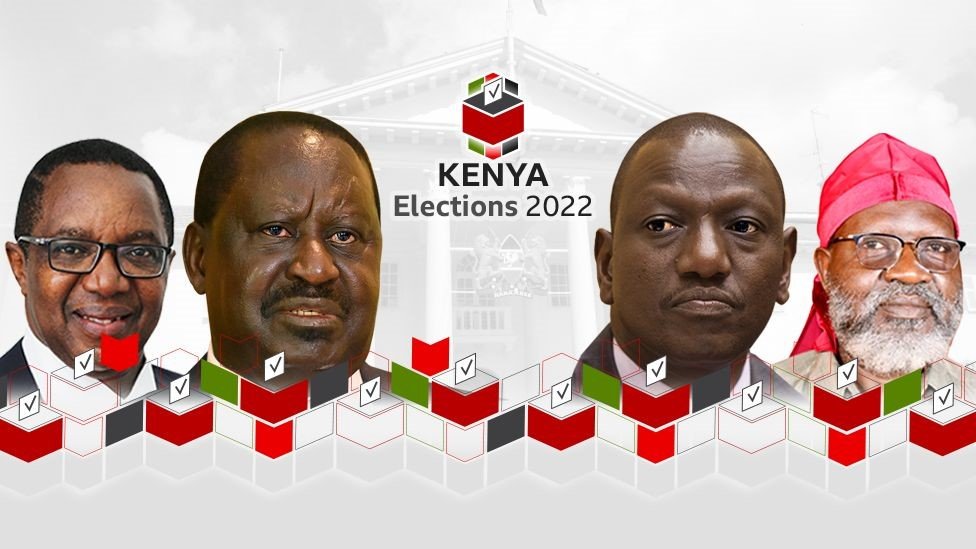Kenya’s 2022 presidential candidates
The 9 August 2022 general elections in Kenya took place in a peaceful environment overall, with fundamental democratic rights respected. Six separate votes were held at different levels concurrently and this made for a complicated process that took nearly a week to finalise, with numerous challenges emerging.
Nevertheless, the fear of violence that was present in previous elections and was a concern prior to this one did not emerge, and a well-developed network of conflict prevention organisations and activities served to mitigate this apprehension. This involved committed state and civil society actors whose actions often positively impacted the process.
Another positive element was the emergence of socio-economic issues as a key focus of the electoral campaign. Although this element is just developing and ethno-regional cleavages continue to underlie voter choice, there is hope that the emergence of issue-based elections is something that might continue to develop in the future.
One of the main features of these elections was the complicated process, combined with the late start in preparations by the Independent Electoral and Boundaries Commission (IEBC). This meant that many elements were not considered as early as they should have been and were often dealt with in an ad hoc fashion, rather than systematically. The IEBC’s administration of the elections was challenged by a lack of resources, both financial and human, a dearth of proper communication that undermined transparency, as well as political divisions that became fully apparent as the process developed. It also called into question the institutional independence of the body, which needs to be further buttressed. Robust institutions that are truly impartial are essential for public trust in future electoral processes.
The IEBC’s difficulties were further compounded by ongoing complaints and appeals regarding various elements of the process, with decisions often coming late in the process and challenging the IEBC’s implementation. One example of this was the decision of the Court of Appeals on the eve of elections to allow for the use of manual voter registers, whereas a previous court decision had determined that they should not be used; thus, instruction to lower-level commissions that had already been transmitted down had to be rescinded at the last moment.
The elections were marred by the lack of a proper campaign finance framework, which meant that incomes and expenditures went largely unregulated and corrupted the political space. Numerous allegations of corrupt resources being used by political contestants and of voters being paid for their consideration were rife. This significantly undermines democratic principles and practices. Without a proper redress of the role of money in politics in the future, democratic progress will be stymied.
Another key factor in these elections was the results transmission process, which was complicated and time-consuming, despite the technology used. One positive element was that the public results portal for the presidential race was able to be established, although at the very last minute. This led to greater transparency in that results forms were uploaded at the precinct level and could be checked online by interested parties.
This also, however, formed a major part of the eventual election petition that was brought by the main presidential challenger before the Supreme Court. Post-election petitions led to a contentious legal battle that pitted the main rivals against each other and against the IEBC, leading to questions of public trust in the results. Despite the lack of evidence presented to the Supreme Court (SC) by the challenger and its subsequent decision to uphold the presidential election results, the legal proceedings raised questions regarding the proper implementation of the process that should be addressed in the future in order to build better trust in electoral processes.
The elections highlighted many positive elements in Kenya’s continued democratic development and desire to improve the electoral processes. Nevertheless, there are a number of areas that require urgent reform and which form part of the recommendations made by the EU EOM in this report.


